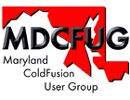 |
 |
 |
|
|||||||||||||||||
 |
|
|||||||||||||||||||
|
 Speakers
Speakers
Charlie Arehart Jo Belyea-Doerrman Tim Buntel Raymond Camden Christian Cantrell Sandra Clark Joey Coleman Sean Corfield Robert Diamond Michael Dinowitz Steve Drucker David Epler Joseph Flanigan April Fleming Ben Forta Shlomy Gantz Mark Gorkin John Hamman Hal Helms Simon Horwith Larry Hull Jeff Houser Chafic Kazoun Matt Liotta Tom Muck Rey Muradaz Nate Nelson Samuel Neff Jeff Peters Bogdan Ripa Neil Ross Margarita Rozenfeld Stephen Shapiro Michael Smith Geoff Snowman Jeff Tapper Dave Watts
|
|
||||||||||||||||||
|
|
| 1 | 2 | 3 | 4 | 5 | 6 | 7 | 8 | 9 | 10 | 11 | 12 | 13 | 14 | 15 | 16 | 17 | 18 | 19 | 20 | 21 | 22 | 23 | 24 | 25 | 26 | 27 | 28 | 29 | 30 | 31 | 32 | 33 | 34 | 35 | 36 | 37 | 38 | 39 | 40 | 41 | 42 | 43 | 44 | 45
Back To Interview list Michael Smith found time to touch base again with Charlie Arehart, and speak about his session on "Database" at the CFUN bootcamp track. Michael Smith: Charlie, why is the database so important to new CF programmers? Charlie Arehart: A new CFML developer won't go very far in their development of an application before they want or need to use a database. Fortunately, CFML was built from the beginning to make that very easy. All a developer needs is a little knowledge of how to set up a database, as well as how to connect to that database (or datasource, in CFML terms). Add a little SQL (Structured Query Language), which is the standard language for querying any kind of database, and a CFML developer can do really powerful things. MS: Is SQL hard to learn? CA: Not at all. To get started, there are just a few statements one needs to know. These can be mastered very quickly and the syntax is very English-like (SELECT, INSERT, DELETE, UPDATE). Of course, like so many things in computing (and life), you can go beyond those basics very quickly. But I'll start with those basic fundamentals one needs to know to get started. MS: What kind of things can you do in SQL? CA: Well, again, if you consider the full strength of the language, there's an enormous range of possibility. But sticking to those basics, the SELECT statement allows you to request data out of a database, and INSERT/UPDATE/DELETE do what their names suggest. Perhaps a more important thing to know is not just how to write SQL to manipulate a database, but also how databases are organized (tables made up of rows and columns, each of those having a datatype; and the concept of a primary key). I'll explain what each of those is about, too. MS: How do you use this SQL in ColdFusion? CA: That will be the next part of the talk: how to use the SQL you've learned within a CFML program, specifically the CFQUERY tag. It's very easy to understand, and this strength makes CFML programs both easy to create, and easy to understand if you're reading a page created by someone else. Beyond that, we'll show how to display the results of selecting some data in SQL. Of course, this is the most exciting aspect of working with a database: seeing your data made available on a web page. We'll see some useful formatting tricks, as I'll provide real code examples to demonstrate all the key points. In fact, I'll be offering several pages of bonus topics. We won't have time to cover them, but the slides will offer the detail needed to solve some common challenges of working with SQL and CFML to do database querying and processing (including such things as using tools to browse databases and generate SQL and CFML automatically, formatting data as HTML tables, and lots more). MS: So there's really not much to know about SQL to work with databases in CFML? CA: Well, as I've alluded to a couple time, it is easy to get started, and even to do some compelling things. The challenge, though, is that too many developers stop at learning only the most very basic fundamentals. There are quite a few things beyond the basics that make a developer really effective. SQL is a powerful language, and in just 50 minutes, I plan to show them quite a bit to really set them on the right path. I'll also point to several more things you can learn beyond the class and point to resources to learn more. MS: That sounds like a real boost for people new to SQL and CF! |
 |
|
|||||||||||||||||
| Home | Topics | Speakers | Directions | Spread the Word | Register |
© Copyright TeraTech Inc 2003
405 East Gude Drive Ste 207 Rockville MD 20850
301.424.3903 Fax 301.762.8185 www.teratech.com
Please send comments/questions to [email protected]
For sponsorships or registration, please send comments/questions to liz-cfun04 (at) teratech.com


































